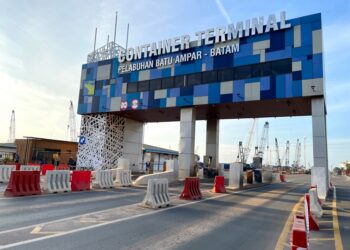E-Scrap News
Certification scorecard for the week of Feb. 9, 2026
The following facilities achieved, renewed or otherwise regained certifications recently.
Texas sues over dumped wind turbine blades
The state attorney general sued Global Fiberglass Solutions over alleged illegal storage and disposal of all turbine blades at two...
ecoATM recycled 7.5M phones in 2025 as payouts hit $1.5B
Used-cellphone recycling kiosk network ecoATM collected around 7.5 million consumer devices in 2025, pushing its lifetime collected volumes past 50...
Meta-Corning deal signals IT hardware retirement wave
Meta's $6 billion optical fiber agreement with Corning signals a coming wave of AI data center equipment retirements.
Malaysia clamps down on illegal e-waste imports amid probes
Malaysia’s growing role as a hub for global e‑scrap is colliding with corruption probes, large container seizures and regional backlash. ...
Greenchip launches fund for community impact and trust
The Greenchip Legacy Foundation formalizing the company's community work while reinforcing its 2026 focus on domestic processing, compliance and transparency...
Royal Mint, Procurri partner for ITAD metals recovery
Reformation Metals partnered with Procurri to combine secure IT asset disposal with clean technology recycling that recovers up to 99%...
ICYMI: Top 5 e-scrap stories from January 2026
News on the scaling up of e-plastics to supply North American OEMs, vapes contributing to a record number of facility...
New Blancco workflow targets ITAD bottleneck
As resale dynamics evolve, Blancco has released a new reimaging tool that aims to improve laptop rebuild quality for ITAD...
Auditors warn EU may fall short on critical metals
A recent report showing Europe is unlikely to secure enough critical minerals by 2030 has implications for ITAD firms and...
More Posts
Work With Us
Newsletter
Get the latest recycling news and analysis delivered to your inbox every week. Stay ahead on industry trends, policy updates, and insights from programs, processors, and innovators.























